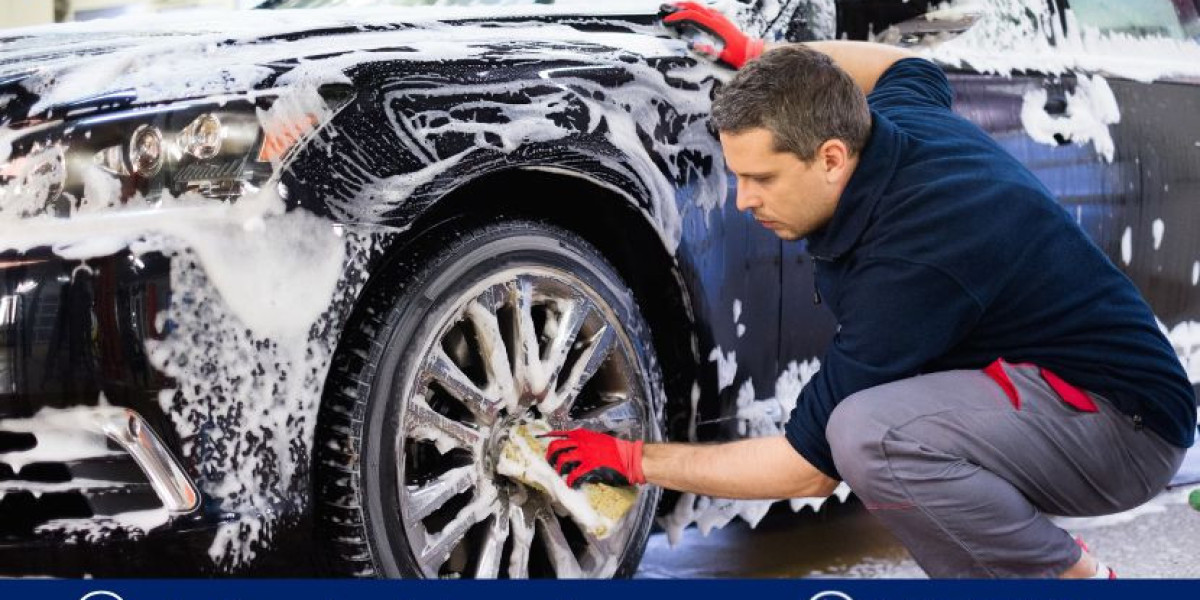Introduction
The global shift towards sustainable practices has significantly impacted various industries, including automobile care. One of the key areas seeing growth is eco-friendly products, and car wash soaps are no exception. Eco-friendly car wash soap manufacturing plant project report delves into the detailed process of setting up a manufacturing unit for producing eco-friendly car wash soaps, focusing on market potential, production techniques, necessary equipment, regulatory concerns, and financial considerations.
With growing environmental awareness and a demand for cleaner, more sustainable alternatives to traditional car care products, eco-friendly car wash soaps are gaining popularity. These soaps are biodegradable, non-toxic, and free from harmful chemicals, making them a safe and effective option for both consumers and the environment. Establishing a manufacturing plant for eco-friendly car wash soap not only capitalizes on this market trend but also supports the global drive towards sustainability.
Market Overview and Demand for Eco-Friendly Car Wash Soap
As the automotive industry continues to grow globally, so does the demand for car care products. However, consumers are becoming more conscious of the environmental impact of their purchasing decisions. Eco-friendly products, such as biodegradable soaps, are now more popular due to their positive environmental benefits. The increasing environmental concerns about water pollution and harmful chemicals have contributed to the rising demand for non-toxic car wash soaps.
Factors Driving the Growth of Eco-Friendly Car Wash Soap
Environmental Awareness: Consumers are increasingly looking for products that do not harm the environment. The harmful chemicals found in traditional car wash soaps can contribute to water pollution. Eco-friendly soaps, being biodegradable and non-toxic, are an environmentally friendly alternative.
Government Regulations: Stricter environmental regulations are being imposed globally, forcing manufacturers to reduce the environmental impact of their products. Regulations regarding chemical runoff and water pollution have spurred the demand for eco-friendly car wash solutions.
Consumer Preferences: More consumers are becoming aware of the benefits of eco-friendly products, and many are willing to pay a premium for products that are safe for the environment.
Sustainability in Business Practices: As sustainability becomes a key priority for businesses and industries, more companies are looking for ways to reduce their carbon footprint. Offering eco-friendly products is one way to align with this global trend.
Automobile Industry Growth: The automotive industry continues to expand, which directly impacts the demand for car cleaning products. Eco-conscious consumers are increasingly opting for green car care products, including car wash soaps.
Get a Free Sample Report with Table of Contents@
Manufacturing Process of Eco-Friendly Car Wash Soap
Manufacturing eco-friendly car wash soaps involves a carefully controlled production process that prioritizes the use of safe, natural, and biodegradable ingredients. The process must ensure that the final product meets the required standards for performance, safety, and environmental impact.
Step 1: Raw Material Selection
The first step in the production of eco-friendly car wash soap is the selection of raw materials. Unlike conventional car wash soaps that may contain synthetic chemicals, eco-friendly soaps are formulated with natural ingredients such as:
- Surfactants: Derived from plant-based sources, such as coconut oil or palm kernel oil, surfactants are the key ingredient in soap formulations. They help remove dirt and grime from the surface of the vehicle.
- Solvents: Natural solvents like citric acid, vinegar, or essential oils can be used to enhance cleaning power without harming the environment.
- Preservatives: Eco-friendly car wash soaps require preservatives that are safe for the environment. Plant-based preservatives or natural antioxidants are used to extend the shelf life of the product.
- Fragrance Oils: Essential oils or plant-derived fragrances are added to the soap for a fresh, pleasant scent.
- Colorants: If color is desired, only natural or non-toxic colorants should be used to maintain the eco-friendly standard.
Step 2: Mixing the Ingredients
Once the raw materials have been selected, the next step is mixing them in the correct proportions to create a uniform solution. This process typically involves:
- Heating and Melting: Some of the raw materials, such as solid surfactants or waxes, may need to be heated or melted before being added to the mixture.
- Blending: The ingredients are blended thoroughly to ensure a smooth and homogeneous product.
- Emulsification: Emulsifiers are used to ensure that water and oil-based ingredients mix properly.
Step 3: Testing for Quality and Performance
Before packaging the eco-friendly car wash soap, it undergoes rigorous testing to ensure that it performs effectively while meeting eco-friendly standards. These tests include:
- Cleaning Efficiency: Testing the soap’s ability to remove dirt, grime, and grease from vehicle surfaces.
- pH Testing: Ensuring that the soap has a pH level that is safe for car surfaces and environmentally friendly.
- Biodegradability Testing: Confirming that the soap breaks down naturally without leaving harmful residues.
- Safety Testing: Verifying that the product is non-toxic and safe for both users and the environment.
Step 4: Packaging
Once the soap has been formulated and tested, it is packaged in eco-friendly containers. Packaging should also adhere to sustainable practices, such as using recyclable materials or containers made from biodegradable plastics or glass.
The packaging design should communicate the product’s eco-friendly attributes, such as “biodegradable,” “non-toxic,” or “plant-based ingredients.” This will attract consumers who prioritize sustainability in their purchases.
Necessary Equipment for Eco-Friendly Car Wash Soap Manufacturing Plant
To establish an eco-friendly car wash soap manufacturing plant, several pieces of equipment are needed to facilitate production efficiently and safely:
- Mixing Vessels: Used for mixing raw ingredients such as surfactants, oils, and solvents. These vessels must be equipped with agitators to ensure uniform mixing.
- Heating Systems: Some ingredients may need to be melted or heated before being mixed. Efficient heating systems ensure that ingredients are processed at the right temperatures.
- Emulsifying Equipment: These machines help combine oil-based and water-based ingredients into a stable product.
- Filling and Packaging Machines: Once the soap is formulated, it is filled into containers and labeled. The packaging machines should be able to handle eco-friendly containers and ensure efficient filling.
- Quality Control Lab Equipment: Testing equipment, including pH meters, viscosity testers, and biodegradability testers, will be required to monitor product quality.
- Storage Facilities: Proper storage areas must be available to store raw materials and finished products in a safe and organized manner.
Financial Investment and Business Considerations
Initial Investment
Setting up an eco-friendly car wash soap manufacturing plant requires a significant initial investment. Some of the major expenses involved include:
- Land and Facility: Purchasing or renting a space that complies with local zoning regulations and environmental laws.
- Equipment: Purchasing the necessary production, mixing, and packaging equipment.
- Raw Materials: Procuring eco-friendly surfactants, solvents, preservatives, and fragrances in bulk.
- Regulatory Approvals: Obtaining necessary licenses and certifications to operate in the market, such as compliance with environmental standards.
Operating Costs
Ongoing operational costs include:
- Raw Material Procurement: The cost of continuously sourcing eco-friendly raw materials for production.
- Labor: Salaries for production staff, quality control personnel, and administrative employees.
- Utilities: Costs for water, electricity, and other utilities required for production.
- Marketing and Distribution: The cost of marketing the product and establishing distribution networks.
Revenue Generation
Revenue will be generated by selling the finished eco-friendly car wash soap to retailers, wholesalers, and directly to consumers. With increasing demand for sustainable products, this market offers strong potential for profitability.
Regulatory Considerations
The production of eco-friendly car wash soaps must adhere to various regulations, particularly those related to environmental protection, safety, and consumer rights. Some important regulations to consider include:
- Environmental Regulations: Ensuring that the soap is biodegradable and free from harmful chemicals that may harm aquatic life or the environment.
- Health and Safety Standards: Complying with safety regulations that protect workers from exposure to hazardous chemicals during the manufacturing process.
- Labeling Requirements: Providing clear and accurate product labeling, including details on ingredients, safety precautions, and environmental claims.
Media Contact
Company Name: Claight Corporation
Contact Person: Lewis Fernandas, Corporate Sales Specialist — U.S.A.
Email: sales@expertmarketresearch.com
Toll Free Number: +1–415–325–5166 | +44–702–402–5790
Address: 30 North Gould Street, Sheridan, WY 82801, USA
Website: www.expertmarketresearch.com
Aus Site: https://www.expertmarketresearch.com.au







